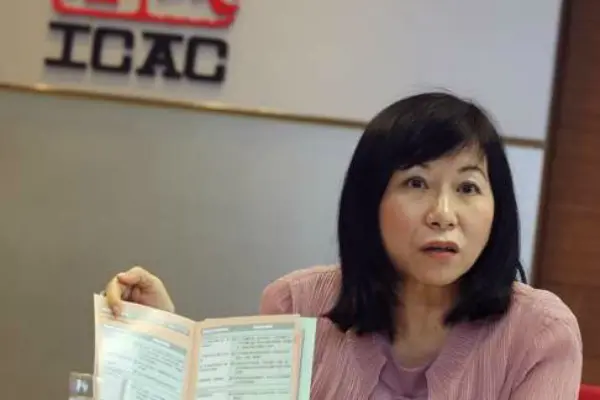Increased competition fuelled by economic downturn cited for heightened likelihood
Hong Kong’s graft-buster has warned of increasing risks of malpractice and corruption in the city’s retail sector amid intensified competition in the current economic downturn.
The Independent Commission Against Corruption (ICAC)said frontline employees – as well as senior management – could easily commit bribery by reserving high-demand goods for certain customers and abusing staff purchase schemes.
Jennie Au-yeung Wong Mei-fong, said retail "plays a very important role in the overall economy". Photo: SCMP
To raise awareness of the risks, the ICAC released a corruption prevention guidebook focusing on the retail industry, for training employees.
Jennie Au-yeung Wong Mei-fong, said retail ‘plays a very important role in the overall economy’. Photo: Edward Wong
“We chose retail to be one of our targeted industries because it plays a very important role in the overall economy and the livelihoods of Hong Kong people,” said assistant commissioner of corruption prevention Jenny Au-yeung Wong Mei-fong.
She said malpractice by frontline staff would hinder Hong Kong’s reputation as a “shopping paradise”.
Some staff might reserve certain brands of milk powder for customers. Photo: SCMP
About 20 to 30 corruption complaints were received about retail industry, but Au-yeung said it was necessary to step up preventative efforts, as the economic downturn had prompted fiercer competition among retailers.
One of the most common practices was for shop assistants to reserve popular items, such as new iPhone devices and certain brands of milk powder, for traders who give them unauthorised rebates or advantages.
Staff discounts were often abused, as employees would resell the products at a profit. Some would also keep the cash paid by consumers, while paying the bill with their own credits – which enjoy special discounts.
Others might reserve iPhone products. Photo: SCMP
Au-yeung said all those acts could infringe the city’s anti-bribery laws, and offenders could face up to seven years in prison or a fine up to HK$500,000.
(SOUTH CHINA MORNING POST)
 简体中文
简体中文

